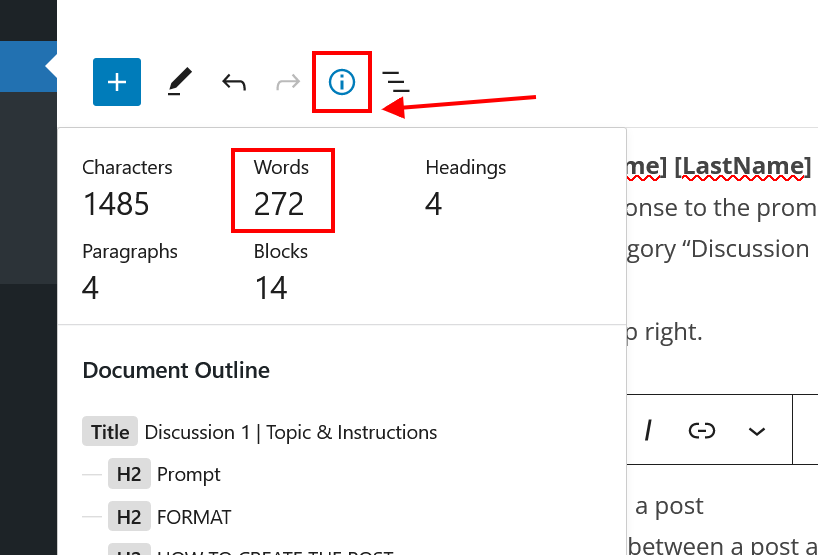This week, your responses can be shorter – and I hope you enjoy the upcoming spring break. After spring break, we have several weeks where we can explore “topics” in gender and women’s studies. This can be very broad and so I am asking that you include in your post this week, some areas you would like the class to explore. So this week, please respond to the following:
- How do this week’s readings by Garza and Williams (and Anzaldua if you did the optional reading) expand your understanding of identity politics?
- What topics would you like to explore as a class in the remaining weeks of the semester? Optional: Why these topics?
Format Requirements
- Due: Wednesday, April 13, 11:59 pm. Written in complete, well-formed sentences & carefully proofreadEngaged with the assigned text by explicitly referring to and/or citing them250 to 500 words. Longer, but not shorter, posts are fine. To view your word count, click the info symbol at the top of the post draft!

How to Create the Post
- 1) Click on the black plus sign in a white circle at the very top of the site (in the black bar) to start the post draft:

- 2) In the title box, type the title “[FirstName] [LastName] Discussion 11“.3) In the body of the post, type your response to the prompt.4) On the right side, choose the post category “Discussion 11.” Your post will not publish without a category.5) Click the blue Publish button on the top right.
- Here is a video tutorial on how to publish a post.If you want to understand the difference between a post and a comment, see this help document.